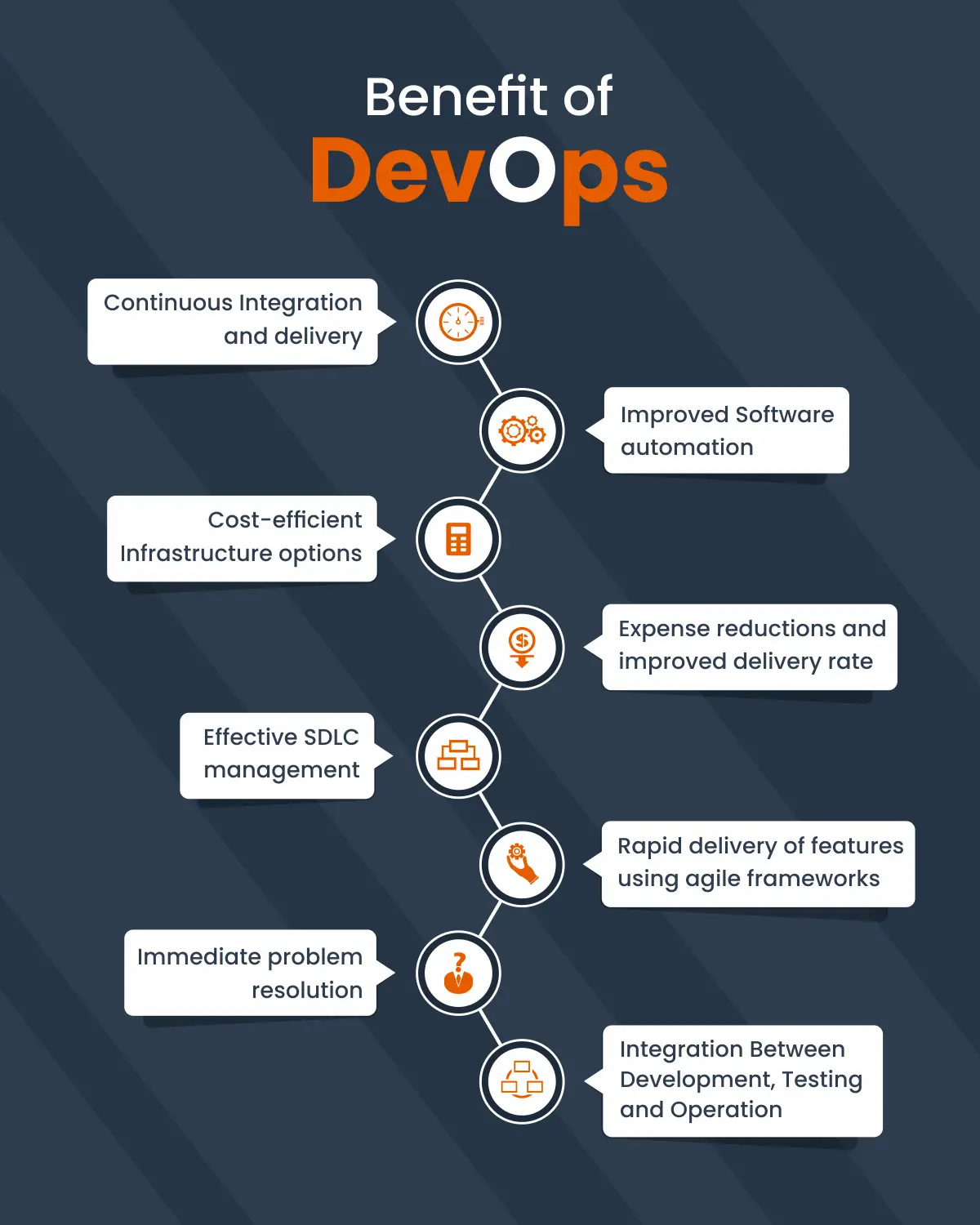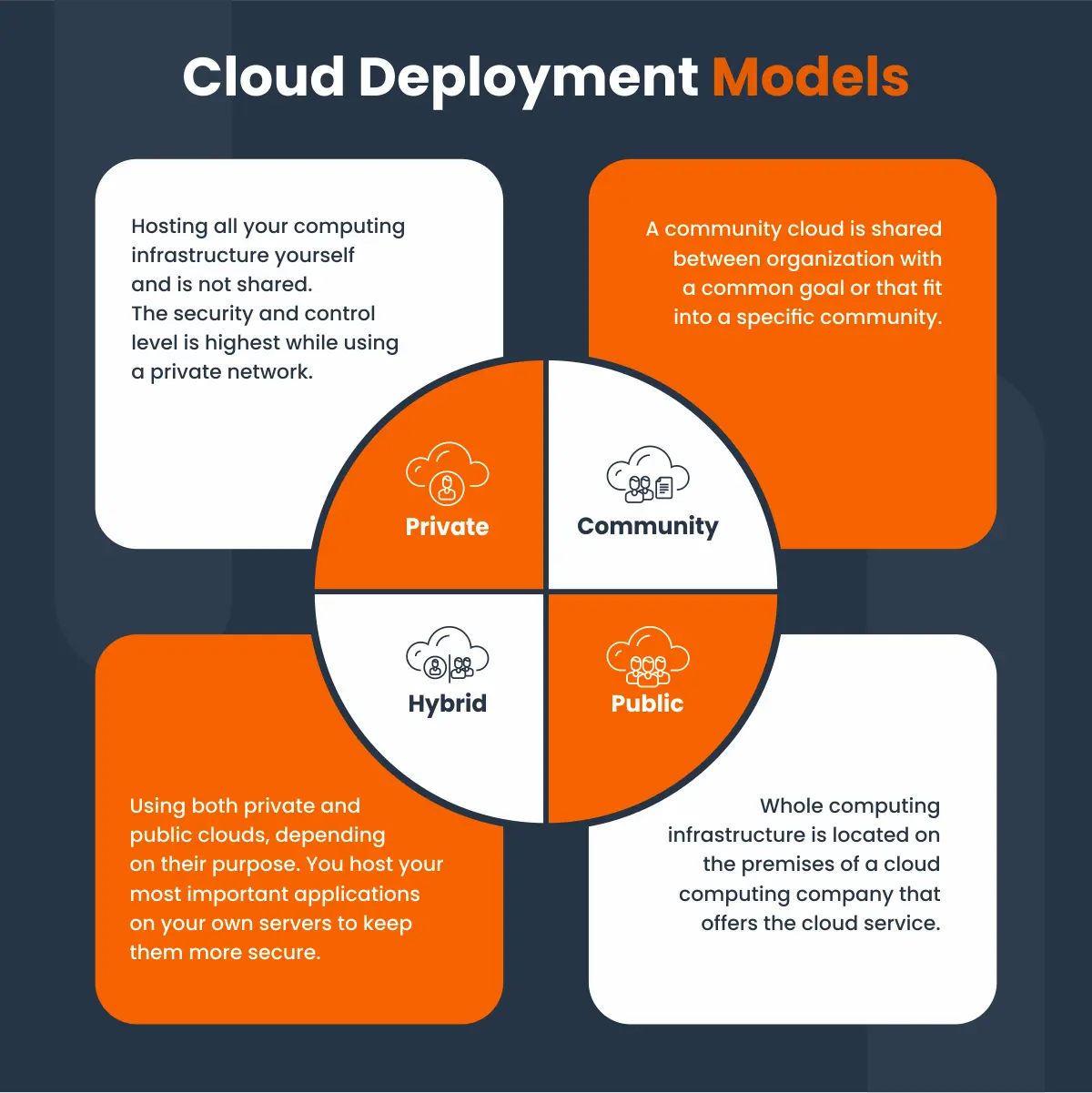Cloud computing and DevOps are two sides of the same coin. With development and operations teams working together, cloud processes can be easily handled and automated. Whether migrating an on-site server to the cloud or deploying files to the cloud server automatically, DevOps makes these operations much easier and more reliable. With cloud computing and DevOps integration, performance, deliverability, user experience, and productivity can be quickly accelerated.
How cloud-based DevOps approach can benefit a project?
Merging the concepts of cloud computing with DevOps has numerous benefits that should be explored. Considering this, the following discussion will illustrate how these two approaches can accelerate the project in different aspects.
Collaboration
First, DevOps brings the development and operational team together, increasing collaboration. Communication and data silo can be eliminated quickly, and everyone working within the software development lifecycle will be aware of the changes, requirements, analytical reports, etc.
Reduced costs
With automated deliveries, continuous integration, and other DevOps and cloud computing principles, the overall operational costs can be reduced by a significant value. For instance, there is no need to bear the upfront cost of implementing DevOps in a strict and rigid on-site workspace. Similarly, companies can opt for different cloud computing models like SaaS, PaaS, and IaaS as per their budget.
Higher security
DevOps allows professionals to constantly monitor the applications and processes being hosted on the cloud server. Any severity or near-about failsafe condition can be identified quickly, and the consequences can be mitigated on time. The chances of data breaches, cybercrimes, server failures, and so on can be reduced significantly with the combined principles of cloud computing and DevOps.
Automation
DevOps allows professionals to automate various business processes and phases of the software development lifecycle. As a result, it can handle larger and more complicated tasks associated with the cloud while focusing on a successful continuous integration and continuous delivery instance.
The perfect combination of DevOps and Cloud Computing for delivering your services at high velocity
Today’s innovative software development teams search for better tools and techniques to build and deploy the best tools. The Cloud is a scalable and flexible path for their success as it offers new solutions for growth, security, and automation. Software companies prefer integrating DevOps into the Cloud, as they can easily compete in an ever-changing and complicated marketplace. Adopting and executing the best engineering practices makes cloud integration successful.
Cloud Computing – to simplify and speed up a development process
More and more IT companies started taking advantage of cloud computing because of its benefits. It delivers computing services over the internet, such as servers, storage, networking, software, analytics databases, and intelligence. It helps companies to lower their costs because they usually pay only for cloud services they use. Integrating cloud computing services help them to run their infrastructure more efficiently.
In cloud computing, companies can approach a cloud service provider and access what they require without owning their data centers or computing infrastructure. It can be anything from storage to applications. The best advantage of using this service is that it helps companies avoid the difficulty and upfront cost of owning and maintaining their own IT infrastructure. They need to pay only for the services they use if they opt for cloud computing.
Cloud computing can be divided into two categories: deployment models and service types. The Cloud can be classified as a public, private, or hybrid cloud depending on the deployment model. Depending on the service the cloud model provides, it can be categorized as infrastructure-as-a-service (IaaS), platform-as-a-service (PaaS), or software-as-a-service (SaaS).
DevOps – An effective method to deliver applications and services at a rapid pace
Getting an idea about DevOps is important to understand its impact on cloud development. DevOps is a relatively new practice in the IT sector for developing and releasing software. The development engineer and the operations team of the IT department use this method for the rapid delivery of their applications and services. DevOps helps companies to create premium-quality software products efficiently and seamlessly. Empowering developers to respond to various business needs is the primary aim of DevOps. In fact, this method is a game-changer in the sphere of software development.
The main objective of DevOps is the coordination of the two important teams and their improvement in communication for better application development. The development and operations teams are not siloed under this method because they might be in other development situations. However, these two teams can work together as a single team. The development engineers work across the entire application lifecycle for development, deployment, and operations.
Related: 6 Deployment Strategies Under DevOps Methodology
The Main Advantages of DevOps are
- For better and constant integration and Continuous delivery
- The successful automation of application releases Infrastructure options for automation and improved Software quality enabled by automation
- Expense reductions and a rise in the delivery rate
- Rapid delivery of features using agile frameworks
- From the start, security, monitoring, deployment testing, quicker service recovery and notification systems were included.
- Immediate problem resolution
- Greater Synergies Between Development, Testing and Operation
When it comes to deployment, cloud computing may be divided into four categories
- Public
- Private
- Hybrid
- Community cloud
If we evaluate the services that cloud computing offers, we can divide them into three categories
- Infrastructure-as-a-Service (IaaS)
- Platform-as-a-Service (PaaS)
- Software-as-a-Service (SaaS)




